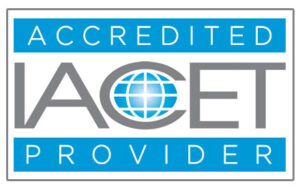32-Hour Rigging Supervisor
The 32-Hour Rigging Supervisor course is an in-depth training program designed for individuals who are responsible for supervising rigging operations in the construction industry. This course focuses on providing participants with the knowledge and skills necessary to oversee and manage rigging tasks safely and effectively.
During the course, participants will learn about various aspects of rigging supervision, including rigging safety regulations, standards, and guidelines. They will gain a comprehensive understanding of the responsibilities and requirements of a rigging supervisor, including conducting job site inspections, assessing risks, ensuring compliance with safety standards, and promoting a culture of safety.
The training will cover topics such as rigging planning, load calculations, rigging techniques, equipment selection and inspection, signaling and communication, rigging hardware, proper lifting methods, risk assessment, and emergency response procedures. Participants will also learn about effective leadership, communication, and coordination skills to ensure smooth and safe rigging operations.
Through a combination of informative presentations, interactive discussions, hands-on activities, and case studies, participants will develop the skills necessary to effectively supervise rigging operations. The course will emphasize practical techniques, industry best practices, and compliance with relevant safety standards and regulations.
Students will participate in hands-on exercises in which they will be responsible for presenting, installing, and using various rigging applications.
Students will be capable of applying rope knots, inspect rigging hardware and apply learned rigging lifting techniques.
Language: English
Duration: 32 Hours
Course Code: CRA-301
Learning Objectives:
- Understanding Rigging Safety Regulations: Participants will gain a thorough understanding of relevant rigging safety regulations, standards, and guidelines, including OSHA requirements, ensuring compliance and promoting a safe work environment.
- Rigging Planning and Risk Assessment: Learners will develop the skills to plan rigging operations, assess potential risks, and implement appropriate control measures to mitigate those risks.
- Load Calculations and Rigging Techniques: The course aims to educate participants on load calculations, rigging techniques, equipment selection, and inspection methods to ensure safe and efficient rigging operations.
- Effective Communication and Coordination: Participants will learn effective communication and coordination skills as a rigging supervisor, ensuring clear instructions, information dissemination, and coordination among team members.
- Rigging Hardware and Equipment Knowledge: The course will cover different types of rigging hardware, including slings, shackles, hoists, and cranes, and ensure participants understand their proper selection, usage, and inspection.
- Signaling and Communication Skills: Participants will learn signaling and communication techniques used in rigging operations to ensure clear and effective communication between riggers, crane operators, and other personnel involved in the process.
- Emergency Response and Rescue Procedures: The course will cover emergency response procedures specific to rigging operations, including evacuation plans, rescue techniques, and effective communication during emergencies.
- Leadership and Supervisory Skills: Participants will develop effective leadership and supervisory skills as a rigging supervisor, including decision-making, problem-solving, and conflict resolution in a rigging environment.
- Practical Application and Case Studies: Participants will engage in practical activities, discussions, and case studies to apply their knowledge and skills in realistic rigging scenarios.
Requirements
- There are no prerequisites needed to attend this course.
- As per 3316.9.2.1 of the 2014 NYC Construction Codes, this course is required by the New York City Department of Buildings (DOB) for individuals who supervise workers attaching or detaching articles from the hook of hoisting equipment and signalpersons communicating with such in New York City.
Features
- CEUs: 3.2
- CEU Requirements: 100% attendance for the course.
- Completion of IACET Registration Form
- Active participation in all class exercises
- As applicable, achievement of minimum passing score on required end-of-course examination
- Participation and submittal of end-of-course evaluation form
Target audiences
- This training is geared for construction foremen, riggers, safety supervisors, rigging inspectors, and personnel in charge of rigging operations not hired directly by a licensed rigger.

